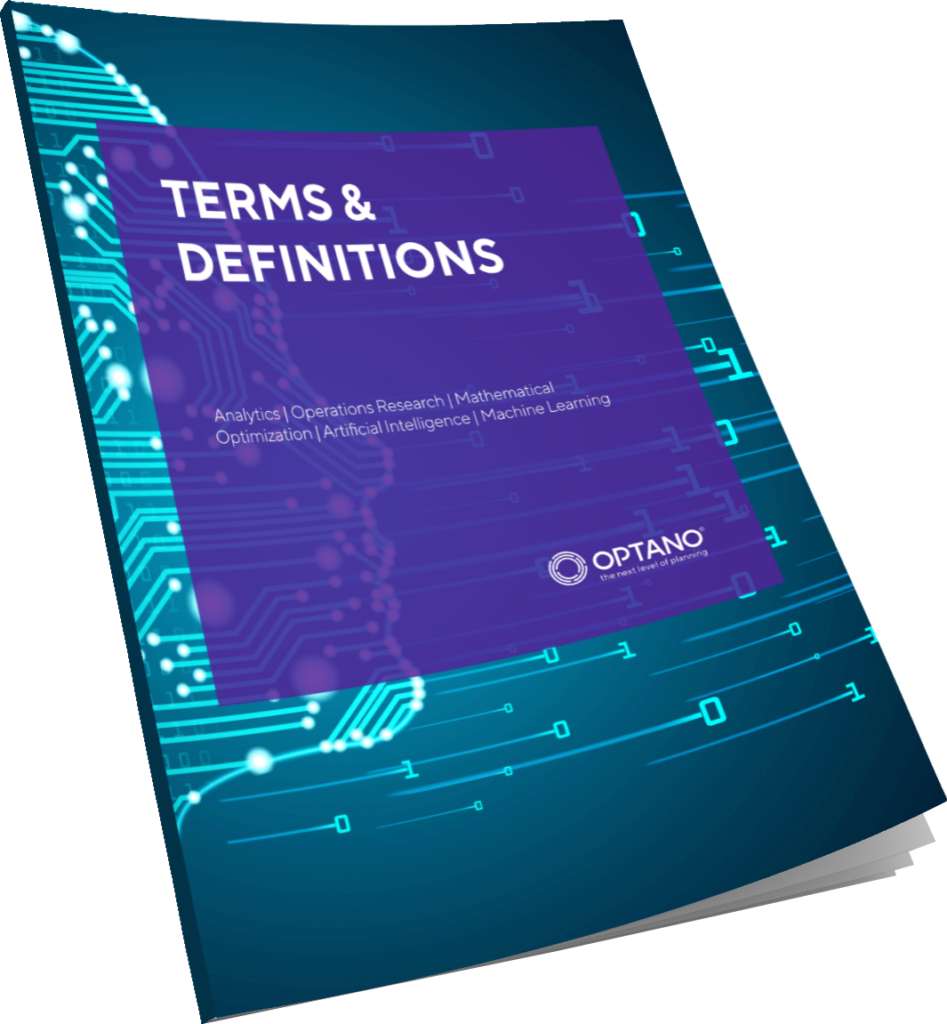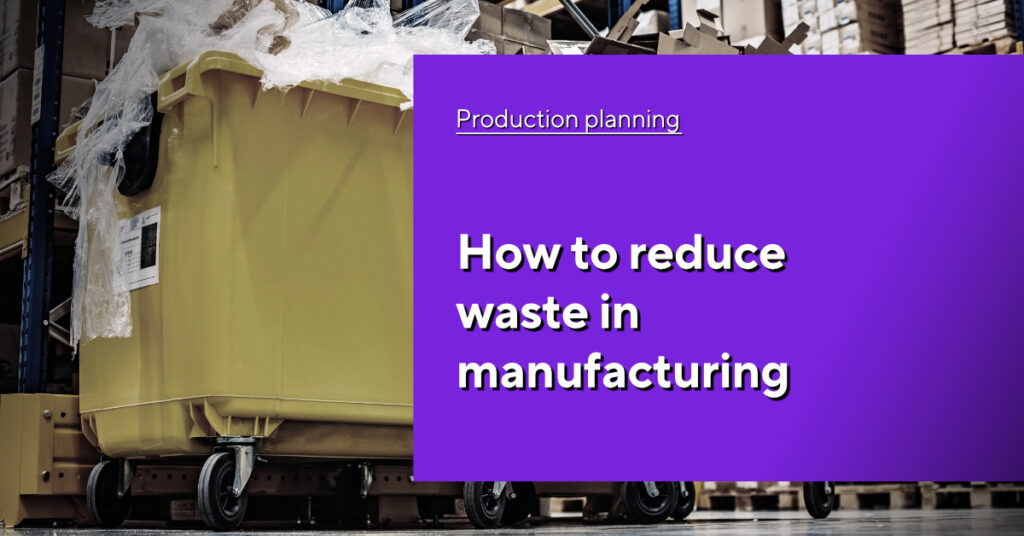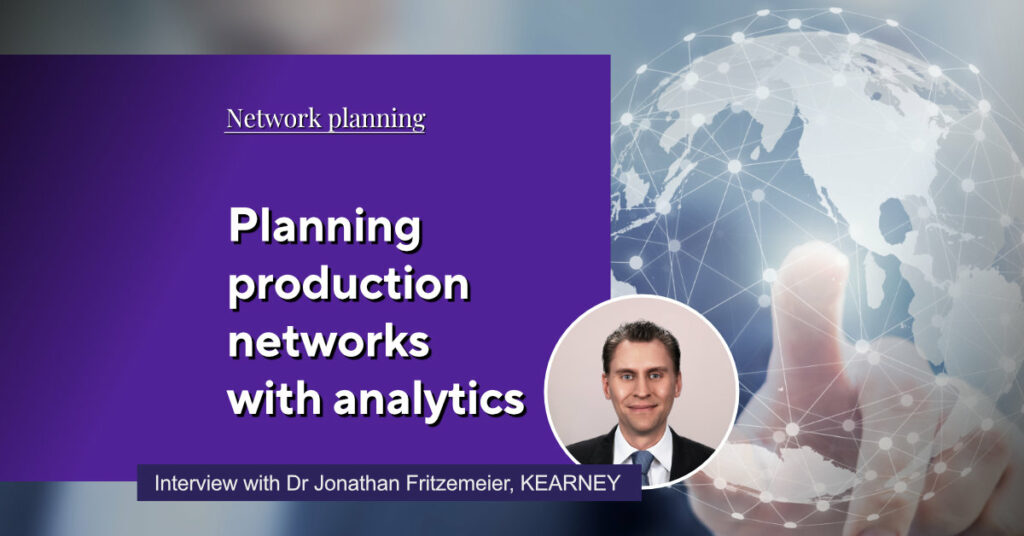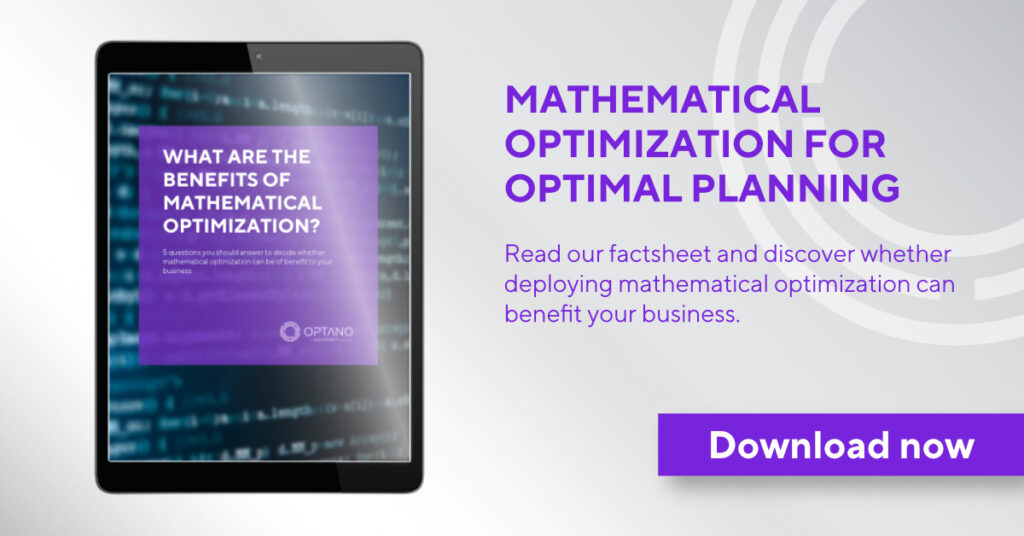Artificial Intelligence
in the process industry
Artificial Intelligence (AI) is all around us: from the highly useful like navigation, facial recognition, search and recommendation tools, e-payments, etc. to the unusual, for example to judge beauty contests or an AI toothbrush to analyze and improve the way we brush our teeth.
As ubiquitous as AI has become, it may come as a surprise to learn that still only few companies in the process industry actually deploy it to facilitate and optimize their business processes, even though it has unleashed huge potential in other sectors such as finance, food and beverage and healthcare. How can companies in the process industry benefit from the opportunities that AI has to offer? In this article we would like to provide some answers to this question.
AI: A basic definition
Simply put, Artificial Intelligence (AI) is a machine or computer’s ability to acquire and apply the knowledge it has gained from data analysis and experience. While AI tools were considered “science-fiction” not so long ago, today they are mainstream and have the potential to change how we live and work, particularly the latter. In business and industry, AI technology has automated many manual tasks and, in many cases, performs these better and with fewer errors, in particular repetitive tasks involving the analysis of vast amounts of details. And, because it can process massive data sets far better and faster than any human can do, businesses can gain valuable insights into their operations which they had so far not been aware of. The advances in AI technology have contributed to the success of many of today’s large, global companies.
Machine Learning and mathematical optimization: Two powerful AI methods
Subfields of AI are also used in Advanced Analytics. This is often applied to help business and industry make informed decisions about their operations.
The largest and most well-known AI methodology is Machine Learning (ML). Machine learning enables software applications to become more accurate at predicting outcomes without being explicitly programmed to do so. It is a highly effective Predictive Analytics tool which processes all of a company’s relevant historical data to automatically detect patterns, learn from the past and predict what may happen in the future.
Mathematical optimization is perhaps the lesser known AI tool yet its power should not be under-estimated. Businesses resort to this AI technique in order to address critical business problems such as production planning, workforce scheduling, network planning and supply chain management. It is a pre-eminent Prescriptive Analytics tool which can generate solutions to the most complex business problems.
With these kinds of AI tools, businesses can gain new insights into their operations and achieve optimal results: higher efficiency, lower operational costs, higher profits, better quality and a vital competitive advantage.
In which areas can AI support the process industry?
The process industry has to deal with various challenges: the fluctuating availability and prices of raw materials on the international market, global supply chain problems, and the observance of stringent quality and sustainability standards. At the same time, companies in the industry have to ensure that efficiency targets are met while attaining maximum profitability. In which areas can AI help, and how?
Supply Chain Management
The process industry has highly complex supply chains which often lack visibility. Unforeseen disruptions can have disastrous consequences. The industry provides us with essential – even life-saving items – so it is all the more crucial that its supply chains are as resilient as possible. Among others, this means
- keeping up to date with the availability of raw materials,
- being able to know when to purchase quality materials at the right price,
- having enough in stock to keep production running,
- and meeting customers’ demands for flexibility and delivery reliability.
AI algorithms can analyze all relevant supply chain data to forecast customer demand. Companies can then schedule their operations as necessary and thus increase efficiency as well as cost-effectiveness. AI tools can also be implemented to predict the future prices of materials by analyzing market and other external data to identify when prices are likely to rise or fall. This helps a company know the right time to buy and adjust production processes to the market. This greatly lowers the risk of any losses.
Inventory
Companies in the process industry need to keep a constant level of stock in their warehouses to prevent delays in the delivery of vital goods and components. Overstocking can lead to a myriad of problems particularly as many goods are subject to special storage conditions due to their composition or features. Too much stock leads to increased storage costs, perishables may require disposal if they cannot be deployed in production as scheduled.
Here also, being able to forecast demand can help companies maintain balanced inventory levels. By leveraging AI tools such as software platforms that use mathematical optimization, you can adjust inventory to account for different lead times and any changes to production schedules. You can identify which steps to take to prevent overstocking and understocking and determine how your inventory can be distributed across multiple warehouse locations for optimal effect.
Production
Efficient production workflows are among the key pre-requisites to ensure that a company maintains a foothold in the competitive global market. Resilient and agile supply chains with demand forecasting, network optimization and advanced production scheduling can contribute enormously towards more efficiency in production. Furthermore, automating repetitive tasks and workflows means that workers can be deployed in other areas which brings more added value.
Machines and systems in process industry plants contain a mass of valuable data which is unsorted and unused to a large extent. All of the relevant historical data in a plant or operating system can be processed and analyzed by AI tools such as ML and mathematical optimization in predictive and prescriptive analytics to identify and optimize workflow patterns or control conditions like temperature, process duration and stirring rates in production. Accurate predictions can be made, for example on where bottlenecks or excess energy consumption may occur, and provide recommendations on how these can be prevented.
Sustainability
The process industry exploits the earth’s natural resources in great amounts and consumes high levels of energy for the manufacture of its products. In view of climate change and global efforts to reduce CO2 emissions and attain sustainability targets, the industry has had to readjust many of its operations to meet environmental norms on carbon emissions, water consumption, or pollution levels in factories without losing sight of its economic targets such as maximum profitability and growth.
With AI-enabled data analysis, companies can easily track and adjust their production to the norms introduced by governments and authorities. This can be implemented by determining optimal process parameters and production sequences. Companies benefit since they avoid having to pay heavy fines for their non-compliance, but also save resources, reduce waste, pollution and CO2 emissions, thus contributing towards sustainability and a greener environment.
More interesting articles
In a nutshell...
The benefits of applying AI-based tools in the process industry far outweigh the doubts and uncertainty that many companies still seem to have. Yet, COVID-19 as well as the geo-political and economic situation over the past few years are sound arguments as to why it is imperative for the process industry to jump on the AI bandwagon.
Artificial intelligence can greatly contribute towards improving a company’s strategic forecasting, productivity, product quality and environmental sustainability; the results being increased cost-effectiveness, efficient operations, less waste and a valuable competitive edge for companies in their respective markets.
How OPTANO applies AI technology
OPTANO is the ideal platform on which to plan your operations fast and effectively. It enables you to solve a multitude of problems and optimizes all of your business processes and workflows to achieve better performance and higher profitability – with highly efficient, integrated and intuitive software.
OPTANO applies Machine Learning methods – the most prominent Predictive Analytics tool – in order to process all of the historical data available in a plant or operating system in order to learn from the past and make future predictions on customer demand, pricing, production, etc.
Mathematical optimization, as a leading Prescriptive Analytics tool, will then leverage this data which it will enter into a mathematical model of your business environment. With the help of special algorithm-based solvers, it will then generate solutions to the most challenging problems and enable businesses to make informed decisions on the best way to optimize operations, streamline processes, plan production, manage their supply chains, achieve sustainability and much more.
If you would like to know whether improvements can also be achieved in your company with the help of AI and analytics Then why not talk to one of our consultants today? We are just a phone call or e-mail away. And if you would like to learn more about the various AI methodologies and Advanced Analytics and how they work, you can download our factsheet “Terms and Definitions“.
AI is not science-fiction any longer
The advances in Artificial Intelligence over the past few years have been enormous. Things we dismissed as ideas for a science-fiction film are now very real today. Here at OPTANO we believe that nothing is impossible. The future is exciting and we look forward to taking an active part in it by helping companies to achieve optimal results so that they can be prepared for anything that the future brings them.
Have you got your copy of our factsheet on this topic?
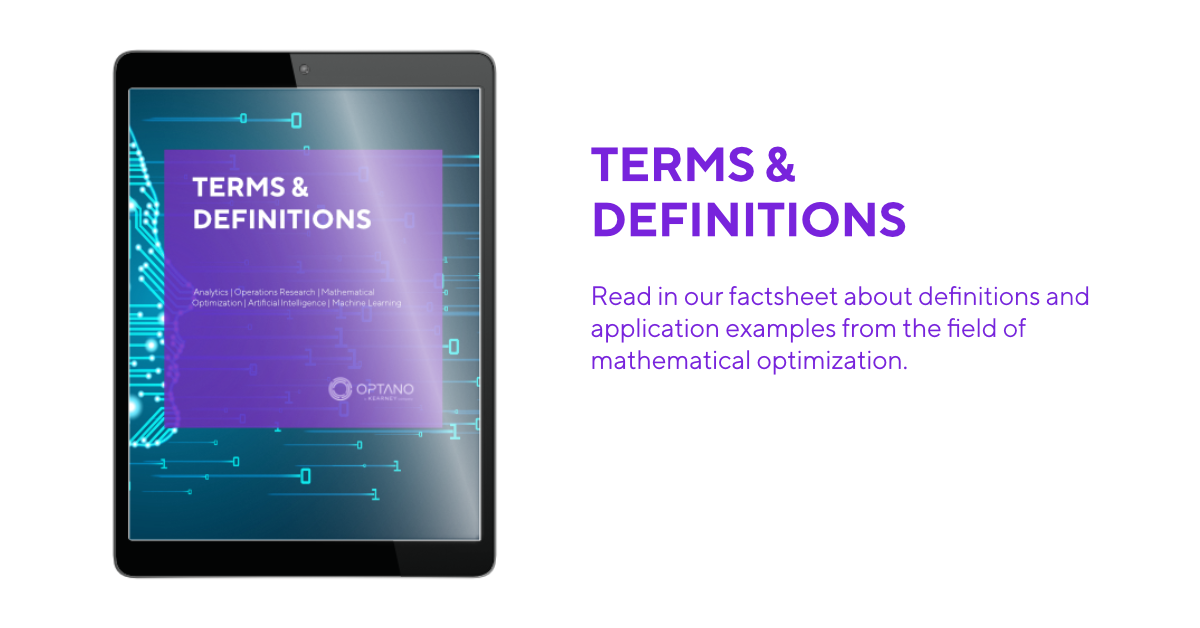
In the field of mathematical optimization, in which we move in our daily work, there are many terms that are not used in a very clear way. In this factsheet, we not only want to get to the bottom of the respective meaning, but also to show the interrelationships.
To obtain our factsheet, all you need to do is enter your contact details in the space below. A pop-up window will then open to download the whitepaper. Please note that by providing us with your email address, you agree that we may contact you on this topic. You may revoke this agreement at any time by contacting [email protected].

